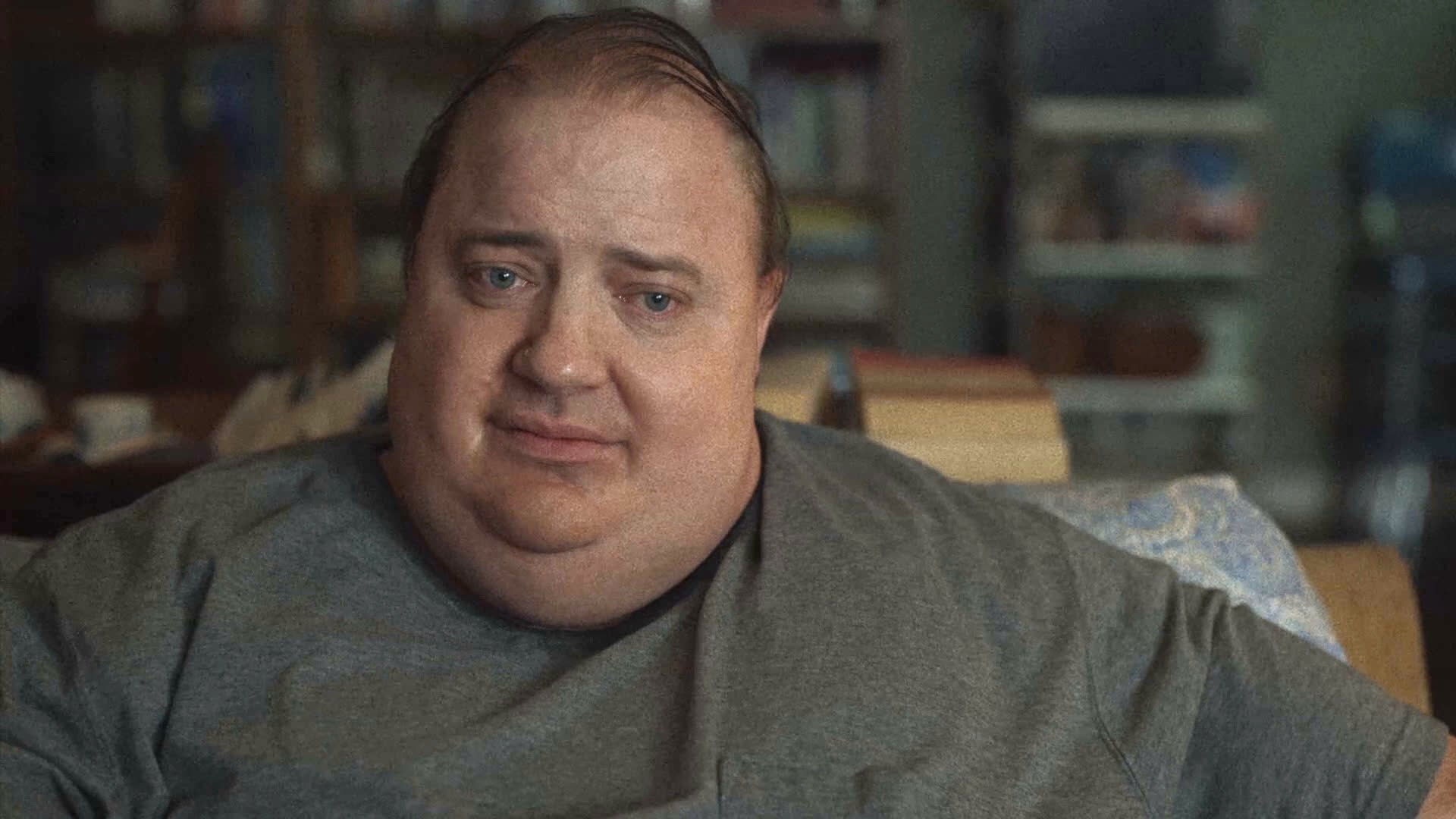The Whale (2022)
Darren Aronofsky’s latest film The Whale prompts questions surrounding societal attitudes towards obesity, parenthood, addiction, religion and morality.
On New Year’s Eve, I caught an early screening of Darren Aronofsky’s latest film The Whale, starring Brendan Fraser, Sadie Sink and Hong Chau.
I watched the film at lovely independent theatre in Notting Hill, and it couldn’t have been a more romantic, fitting setting in which to see it.
Co-produced by A24, the film depicts the final week of Charlie (Fraser), an intelligent English teacher who struggles with obesity after the death of his partner, who we discover to be his former male student, Alan. Aronofsky is known for his unsettling and disturbing approach to filmmaking, and The Whale makes no exception.
Brendan Fraser as Charlie
I hate the name of the film and I do understand and share the concerns around its portrayal of obesity, but I also perceived it as a film that spotlights a story, even an entire world, of an individual who represents a dismissed and ostracised sector of society. Charlie deliberately withdraws from the outside world, only communicating with his caretaker and lover’s sister Liz, his English students online (for whom he doesn’t turn his camera on), and most recently, his estranged daughter Ellie.
Ellie returns into his life as a rebellious, disgruntled and angry teenager. Charlie offers to complete her homework and give her his life savings (approximately $120,000) in exchange for her spending time with him. She understandably harbours much resentment towards her father, who abandoned her and her mother to pursue a relationship with Alan. She is belligerent, aggressive and painfully honest. She has no filter and says everything she’s thinking. I think that’s what Charlie appreciates and loves most about Ellie: her honesty. He even finds it in him to excuse her when her mother shows a stream of her Facebook posts brutally ridiculing Charlie’s image and size.
The theme of honesty permeates the entire film, and we quickly understand it’s what Charlie craves. It’s not explicitly stated, but rather implied that perhaps Charlie has lived a hidden, clandestine life, comprised of many lies. This can be exemplified in his undoubtedly secret relationship with a student, living his truth as a gay man, and his decision to be a recluse as an unhealthy man. He doesn’t even show his face to the pizza delivery man who comes by every night. The pizza delivery man has an image of Charlie merely based on his voice and short verbal interaction with him each night, and is shocked to the point of running away when he finally sees what speaks back to him from the other side of the door. It’s all a lie. Ellie doesn’t subscribe to any of this “bullshit”. She is cruel, but she is honest, and the fuel he needs to rectify things in his life before his time is up.
Charlie’s caretaker and Alan’s sister Liz
Tying in with the theme of honesty is religion, personified by Thomas, a rogue missionary that shows up on Charlie’s doorstep on Monday. Initially, we don’t know where he’s come from or why he’s here, but with each passing day, we find out he’s posing as a missionary for a New Life Church, an institution at which Liz and Alan’s father preached. He is, in fact, on the run from another church in Iowa after stealing money, fearing his parents would disowned him. In my opinion, Thomas represents the delusion that has infiltrated the institution of religion. He, himself, is not even a real missionary. There’s no honesty. No attempt to face reality. Just a large amount of misplaced hope.
Much to Liz’s annoyance, Thomas continues to visit each day, leading to a triumphant declaration of Jesus’ ‘love’ the night before Charlie passes. Thomas scrambles to find Bible verses that validate and justify all the pain and hardship Charlie has suffered, instead of facing the real reasons. Charlie’s days are numbered – God or Jesus isn’t coming to save him. Alan died due to religious-driven prejudice and homophobia – not because he was gay, as Thomas alleges. Charlie became obese because he couldn’t cope after the love of his life died. That’s it.
Charlie was a tortured soul who made mistakes, but so desperately wanted to redeem himself through educating youth, reconnecting with his daughter before he passed, and being an overall benevolent person. Especially to the Pizza delivery man.

